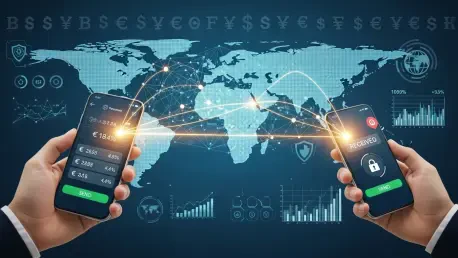I’m thrilled to sit down with Zainab Hussain, an esteemed e-commerce strategist with a deep background in customer engagement and operations management. Today, we’re diving into the groundbreaking partnership between Qasemi Islamic Microfinance Bank (QIMB) and TerraPay, a collaboration aimed at transforming cross-border payments in South Yemen. Our conversation will explore the motivations behind this alliance, the unique challenges it addresses for the region, the mechanics of the payment system, and the tangible benefits for local households. We’ll also touch on the importance of compliance and accessibility in financial services, and how this partnership is paving the way for seamless global money movement.
How did the partnership between QIMB and TerraPay come to fruition, and what sparked this collaboration?
The partnership was born out of a shared vision to tackle the persistent challenges of cross-border payments in South Yemen. We recognized that remittances are a lifeline for many families here, yet the process was often bogged down by high fees and slow delivery times. The idea emerged during discussions at industry events like Money2020 Middle East, where we saw an opportunity to combine QIMB’s deep-rooted local presence with TerraPay’s global payment infrastructure. It was about creating a solution that’s not just efficient but also trustworthy for the people we serve.
What specific challenges do people in South Yemen face when receiving money from abroad, and how does this partnership aim to address them?
Many in South Yemen have struggled with fragmented access to remittance services, often relying on informal channels that come with steep costs and long wait times. Some transactions could take days to settle, which is a real hardship for families depending on that money for daily needs. By partnering with TerraPay, we’re streamlining the process—cutting down fees, speeding up delivery, and ensuring funds reach bank accounts and mobile wallets directly. It’s about making the system work for the people who need it most.
Can you walk us through how this new payment system operates for cross-border transactions into South Yemen?
Absolutely. The beauty of this setup is its simplicity. QIMB has a single integration with TerraPay, which acts as a gateway to a vast network of global financial institutions, both banks and non-banks. This means senders from places like Saudi Arabia, the UAE, or even the US can transfer money to South Yemen without multiple intermediaries. Funds are delivered digitally, in real-time, to either bank accounts or mobile wallets in USD or SAR. It’s a straightforward, efficient process designed for maximum reach.
How does this collaboration ensure that transactions are secure and compliant with international regulations?
Security and compliance are non-negotiable for us. We’ve built end-to-end regulatory controls into the system, including pre-validation and screening of every transaction. This means every transfer is checked for accuracy and adherence to global standards before it’s processed. On top of that, our treasury and operational workflows are designed for resilience, so there’s no room for error. We want our customers to have complete confidence that their money is safe and handled responsibly.
What kind of impact do you expect lower fees and faster delivery times to have on households in South Yemen?
The impact is profound. Lower fees mean more of the sent money actually reaches the recipient—every dollar counts for families managing tight budgets. Faster delivery, often in real-time, improves household liquidity, so people aren’t left waiting for funds they need urgently for things like food or medical expenses. It’s not just a financial improvement; it’s a quality-of-life enhancement that gives people more control and peace of mind.
Can you elaborate on what “secure and accessible financial services” means in the context of QIMB’s mission?
For us, “secure” means ensuring every transaction is protected against fraud or errors, with robust systems in place to safeguard customer funds. “Accessible” is about breaking down barriers—making sure people in even the most remote areas of South Yemen can receive money without needing to travel long distances or navigate complex processes. This partnership with TerraPay helps us extend our reach, delivering funds directly to mobile wallets and bank accounts, so financial services are within everyone’s grasp.
Why is the concept of interoperable payment systems so significant, and how does TerraPay’s technology play a role in this?
Interoperability is a game-changer because it allows different financial systems to talk to each other seamlessly. Imagine a sender in Europe using their bank to transfer money to a mobile wallet in South Yemen—without interoperability, that process would be riddled with delays and costs due to multiple intermediaries. TerraPay’s technology creates a unified network, or “payment rails,” that connects global senders to local recipients through a single integration. It simplifies everything, making cross-border payments as easy as sending a text.
What is your forecast for the future of cross-border payments in regions like South Yemen?
I’m optimistic about the trajectory. With partnerships like ours, I see cross-border payments becoming even more seamless, affordable, and inclusive over the next few years. Technology will continue to drive down costs and improve speed, while regulatory frameworks will evolve to support innovation without compromising security. For regions like South Yemen, this means greater financial inclusion—more people will have access to formal banking services, and remittances will play an even bigger role in economic stability. We’re just at the beginning of this transformation, and I believe the impact will be felt for generations.









